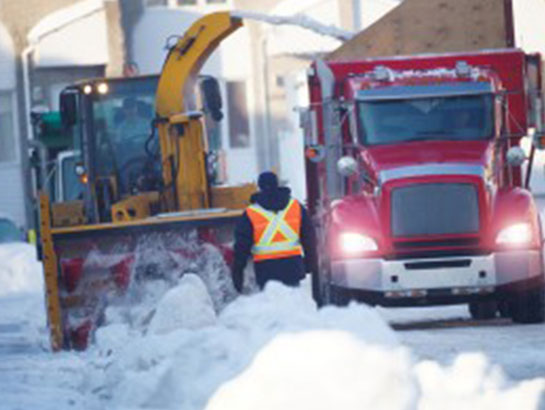Exposure to cold weather on the job can cause a range of serious injuries. Every Illinois workers compensation attorney is familiar with cases in which employees suffer physical damage while working outside during frigid Midwestern winters. By learning more about four common cold-weather work injuries, outdoor workers can decrease the risk of disability or death in the line of duty.
Hypothermia
Hypothermia is a particularly dangerous cold-related condition because it can sneak up on workers with little or no warning. It is not necessarily a result of sustained sub-zero weather. It can also occur even when temperatures are hovering above or around freezing. Exposure to high winds, moisture, sweat and heavy precipitation can increase the risk of developing hypothermia while outdoors. The most common signs of this condition include the following:
- Severe fatigue
- Dilated pupils
- Loss of coordination
- Disorientation
- Severe shivering
If hypothermia is allowed to progress to an advanced stage, shivering may cease completely and the patient may become unresponsive or fall into a coma. An Illinois workers compensation attorney is aware that death often follows in such cases.
Trench foot
Trench foot was first diagnosed and named during World War I, when soldiers spent long periods of time with their feet immersed in cold and wet trenches. Civilian workers are also at risk of this dangerous condition if they work outdoors with wet feet. According to the U.S. Centers for Disease Control and Prevention, trench foot can occur even when air temperatures hover around 60 degrees Fahrenheit. When feet remain damp for hours or days, blood vessels may constrict and cause skin tissue to die. Trench foot can lead to gangrene and possible loss of limbs.
Frostbite
When the body’s tissues are allowed to freeze, they can suffer permanent damage from ice crystals and loss of blood circulation. Freezing injuries of this sort are known as frostbite. In cold working conditions, employees may discover symptoms such as waxy skin, numbness, pain or tingling. If these signs are present, the worker must protect the affected area and find shelter as soon as possible. Untreated frostbite often requires amputation.
Chilblains
Some cold-related injuries are not fatal but can still be painful and disabling. Chilblains are a common annoyance caused by skin exposure during periods of cold weather. The capillary beds of the skin are damaged, causing itching and redness that can recur every time the skin is exposed to cold temperatures. In extreme cases, chilblains can cause blistering or ulceration.
Outdoor employees should know about the dangers of cold-related injuries. If you work in extreme temperatures, you may want to consider speaking with an Illinois workers compensation attorney.


Recent Comments